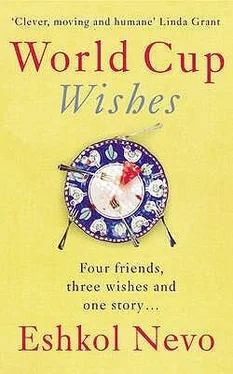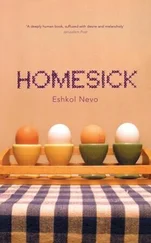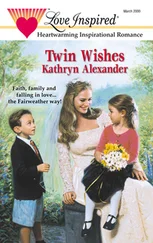Ofir and I looked at each other and were silent.
Amichai trembled slightly as a sudden gust of wind slid across his skin, and he hugged himself.
And … if we don’t manage to do it, I said quickly, we can go back to watching football together, because … we’ve been neglecting that lately.
There’s a championship league game on Wednesday, Ofir reminded us.
Who’s playing? Amichai asked, his curiosity piqued. Real against Bayern, Ofir replied.
Group qualifying stage?
Are you joking? It’s the quarter final already.
*
On Wednesday, Ya’ara called to tell me that there were developments. The last millionaire, the suntanned one, said no, as expected. But Mr Goldman — our first meeting was with his representative — had suddenly decided to back us after all.
But what … what made him change his mind like that?
Turns out that he didn’t feel well over the weekend and spent a whole night in hospital, and that … changed his perspective somewhat. But wait … it’s too soon to celebrate. He’s ready to fund you for a year of activity, she said, and then, if he sees that you’re serious, he’s ready to fund you for another two years. But he has two conditions … pretty annoying conditions, to tell you the truth.
So tell us.
He … he insists that the organisation bear his mother’s name. That means … not Ilana’s name.
What a bastard, Ofir blurted out.
We looked at Amichai. We knew how important it was for him to commemorate Ilana. Written on every slide were the words ‘Our Right — The Ilana Abramowitz-Tanuri Non-Profit Organisation’.
Amichai nodded slowly, taking in the news, and then said confidently into the phone: I’ll take care of it. Go on, Ya’ara, what’s the second condition?
He wants matching.
Matching?
He doesn’t want to be the only sponsor. He wants someone else involved. Someone with Israeli citizenship.
Why?
I didn’t ask. I was afraid that if I asked, he’d withdraw the offer.
What a nightmare. What are we going to do? Where are we going to get fucking matching now?
*
A week later, Amichai received an envelope in the post with a large cheque in it. Very large.
With an accompanying note.
My Bro, Amichai ,
I want you to know that I haven’t been able to stop thinking about you since the shiva . I really wanted to be with you in your hour of need, but life is a big, strong river and it carried the small, broken piece of wood that is Shahar Cohen far from all of you, and for the time being, I can’t come back to Israel. But a little bird told me about the NPO you’re trying to set up to help people that doctors aren’t nice to and I think that’s a great idea, so I’m attaching a small cheque for you in the hope that it will help you get organised. Don’t make a big deal out of it. I happen to have some free cash I made last year and better to invest it in my friends than in clothes, right?
Regards to all ,
Shahar
How did Shahar Cohen hear about our NPO? To this day, we have no idea. A few weeks before that, someone we knew in high school who went to Berlin told us that he saw a panther in the city zoo whose face looked amazingly like Shahar’s. That led us to the inevitable conclusion that after drifting around the world, Shahar Cohen had drifted into the body of a panther.
Ya’ara admitted that the idea of turning to Shahar Cohen had actually crossed her mind, and without telling us, she even called the Israeli embassy in Canberra, the last place we’d had signs of life from him. But the embassy told her that they had no documentation suggesting an Israeli citizen named Shahar Cohen, or Ricardo Luis, had been in Australia during the last ten years.
*
Three months later, we held an event at the Rokah House to launch Our Right. The media people there were more interested in Amichai’s personal tragedy than in the organisation, but Ofir said that’s how media people are and it doesn’t matter: the main thing is that we get coverage.
A lot of people went up to the podium set up for the occasion and pledged to work as volunteers. Many of them were former members of the health system: people who had been fired or had retired or had been taken ill and found themselves suddenly on the other side of the fence, victims of the system they had once been part of.
Surprisingly, one of the people who went up to the podium was the director of a small hospital in the centre of the country that had recently been the focus of a series of investigations into the disgraceful treatment of patients by the hospital medical staff. The publicity had led to such a drastic drop in the number of people seeking treatment at the hospital that it was on the verge of financial collapse.
The director took Amichai aside, had a short conversation with him, put a fatherly-conspiratorial hand on his shoulder and arranged a meeting to check out the possibilities of working together.
At night, when the last of the guests had gone and only the three of us were left, we tried to persuade Amichai to go out and celebrate the success of the event. Not to celebrate, to have a drink. Not to have a drink, to sit somewhere. In short, whatever he liked.
He said he wasn’t in the mood. The evening had reminded him of Ilana, and all those newspaper interviews had made him sad. They pretend to care about you, he said, and then, the minute they’ve sucked everything they can out of you, the minute the interview is over — they’re not interested in you any more.
That’s just the way it is, Ofir said. That’s how newspaper people are.
And Amichai said that he was sick of hearing ‘that’s just the way it is’. And that now, he wanted to go home to his children.
*
So Ofir and I went out to celebrate alone.
We didn’t actually know where to go. When Ofir had worked in advertising he had always updated us on the hot places, but now he’d gone far away to Michmoret and depended on me to guide him. And I was never big on going out. So we went to a bar we once used to frequent, and when we got there, it turned out that its name had been changed. And also the façade. For a minute, we considered leaving, but Ofir said it didn’t matter, all we wanted to do anyway was talk. So we went inside. People were dancing in the aisles between the tables to the sound of pounding, ear-splitting music. Well, they weren’t exactly dancing, because it was too crowded. It was more like they were rubbing up against each other. We squeezed into the last two empty stools at the bar and signalled to the barman to come over, but he didn’t notice. We tried to talk to each other, but we couldn’t hear anything. The hideous song that was playing when we walked in ended and a new, even more horrible one began, a cheap cover version of a beautiful ballad from the ’80s. If there’s something I despise, it’s cover versions. They always make me miss the original. So I put my mouth up against Ofir’s ear and asked if his flat feet weren’t … hurting him by any chance.
He smiled with admiration. It was nice that I remembered his old excuse.
We escaped on to the street and walked without speaking till we reached a kiosk. We bought beers and sat down on a public bench that was badly in need of paint. Every once in a while, women walked passed and looked at Ofir.
Women always looked at Ofir.
We’ve already forgotten what it’s like, haven’t we? I said, pointing back to the place we’d just left.
Yes, he said, sipping from his can of beer. It was … too noisy … too frantic … I’m not used to that any more. And the people there … I felt a bit …
Yes … The generation that came after us is …
Nothing to write home about … nothing at all … Ofir said with a slight Polish accent.
Читать дальше












